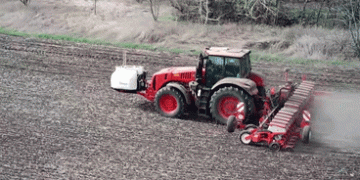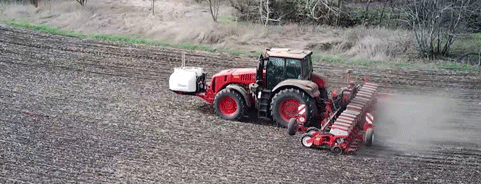Domestic Sugar Beet Hybrids Gain Ground in Southern Russia
In the heart of southern Russia’s fertile Kuban region, the spring sowing campaign for sugar beet is in full swing. For the fifth consecutive year, farmers in the Novokubansk district are planting domestic hybrids—primarily the locally developed “Korvet” and “Prestige” varieties. Their confidence in homegrown seeds is rising, backed by both economic and agronomic advantages.
One standout feature: Russian hybrid seeds are three times cheaper than imported alternatives, while delivering comparable yields of 400–600 centners per hectare (40–60 tons/ha). Even in last year’s drought, local farmers reported yields of 370 centners/ha, a solid performance given the challenging weather.
In 2025, the sowing strategy has evolved. To retain soil moisture and suppress weed competition, many farms are using direct seeding combined with post-emergence glyphosate application—a traditional yet effective method for moisture conservation. Agronomist Nikolay Frolov confirms this approach aligns well with the conditions of early spring and the requirements of domestic varieties.
Rising Share of Domestic Seeds
According to regional data, the share of domestic sugar beet seeds in the Kuban region has grown from 0% to 10% over the past five years. This trend is supported by research institutions like the Krasnodar Research Center for Breeding and Seed Production, which are actively developing new hybrids tailored to local soils and climate.
One reason for initial skepticism among some producers has been the compatibility of Russian root crops with foreign-made harvesting equipment. Most Russian farms still rely on imported beet harvesters, often optimized for Western hybrids. However, Kuban farmers have dispelled these concerns by successfully adjusting equipment settings to handle Russian beet varieties.
Notably, farms like “Urupskoe” Seed Farm have completely switched to domestic hybrids for sugar beet. Farm director Anatoly Murashkin highlights the higher sugar content and better storage life of the local varieties as key benefits.
The Bigger Picture
Globally, sugar beet remains a crucial crop for sugar production, with Russia ranking among the top producers alongside the EU and the United States. In 2023, Russia produced approximately 39 million tons of sugar beet, according to the FAO, and is working toward improving self-reliance in both seeds and processing technologies.
By embracing domestic hybrids, Kuban farmers are not only reducing costs and improving yields, but also contributing to Russia’s broader goal of agricultural sovereignty. If the trend continues, it could significantly reduce the country’s dependence on imported planting material—a strategic win in times of global uncertainty.
The Kuban region’s sugar beet campaign in 2025 highlights the growing success of Russian-bred hybrids in real-world farming. With lower seed costs, solid yields, and adaptability to existing farm machinery, domestic sugar beet varieties are gaining credibility. As research continues and adoption spreads, Russia moves one step closer to full agricultural independence.































